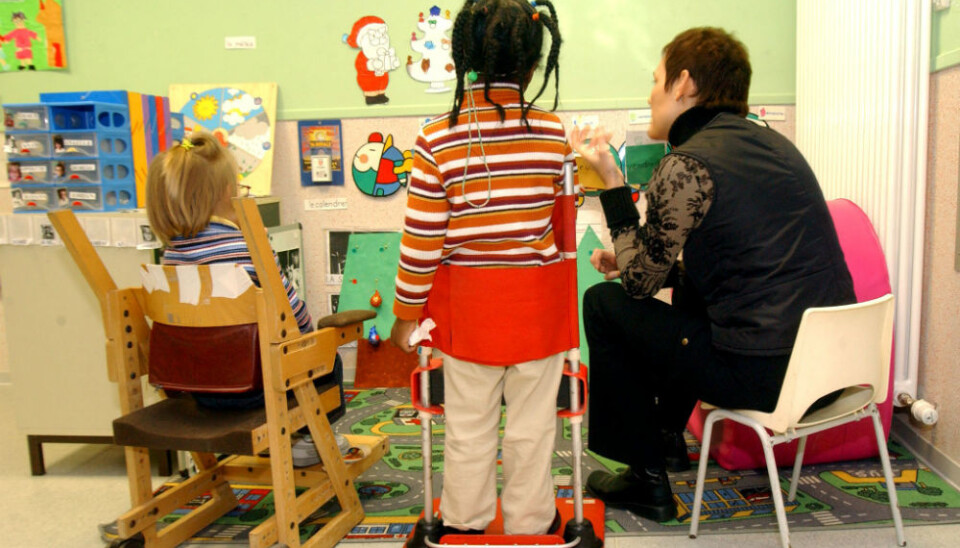This article was produced and financed by Oslo Metropolitan University

Parents with disabled children report different experiences with support services
Little access to information about the support services available could affect who gets help and who doesn't.
The parents of children with disabilities often experience that information about the support system and its services are incomplete and random. This forces them to figure out how to get help themselves, which may lead to a skewed distribution of the assistance rendered.
Families with children who have a disability often have very challenging life circumstances which means that they require more help from public services than others.
In a new report from Norwegian Social Research (NOVA) at HiOA researchers Aisha S. Demiri and Tonje Gundersen looked into how these parents experience the public services they receive. The report is based on summarized research from a number of countries as well as the researchers’ own interviews.
Mixed feedback
The findings from international research show that the parents’ experience of the assistance they are given varies significantly. Parents whose children’s functional impairments were discovered at birth seem to have a more positive experience of the support systems than others.
“This may be due to hospital staff helping them get in touch with the support systems at large,” project leader and researcher Tonje Gundersen comments.
Danger of skewed distribution
“Many parents think it is tiresome to get an overview of how to secure assistance for their child,” Gundersen explains.
Many parents experience that the information about the support systems and its services are incomplete, random and depend on the people involved. The responsibility to get and coordinate assistance thus falls on the parents. Finding answers and possibilities in a complicated system that depends on multiple sets of laws is often challenging.
“Not all parents have the same resources or possibilities to manage, and this can cause skewed distribution of official assistance,” warns Gundersen.
Minority parents especially at risk
The problems the majority of these parents experience in regards to dealing with the support systems and accessing assistance might be even more prevalent for parents with minority backgrounds. The challenges as regards to information are fortified, and the threshold to seek help even higher.
“Continuing inadequate and random information, random assistance and help will over time lead to parents becoming exhausted, stressed and burned out,” says Demiri.
Wants to professionalize the coordinator role
The researchers claim the study shows that measures ensuring that parents receive information and appropriate services at the right time are necessary. They especially emphasize the necessity of parents receiving relief in the form of assistance when writing applications and when keeping track of the documentation needed as well as which services they are entitled to.
The findings from international research coincide with the results of the researchers’ own interviews. All of the parents interviewed expressed that they would like one person to interact with who had an overview of the support system and who could inform them about services, help them with applications and keep track of decisions, documentation requirements and application deadlines.
“Professionalizing the coordinator role could be an important measure in order to secure a fairer allocation of public assistance no matter the parents’ resources,” Gundersen points out.
Reference:
Demiri, A.S. & Gundersen T. Tjenestetilbudet til familier som har barn med funksjonsnedsettelser. NOVA: Rapport 7:16, HiOA, Oslo






























